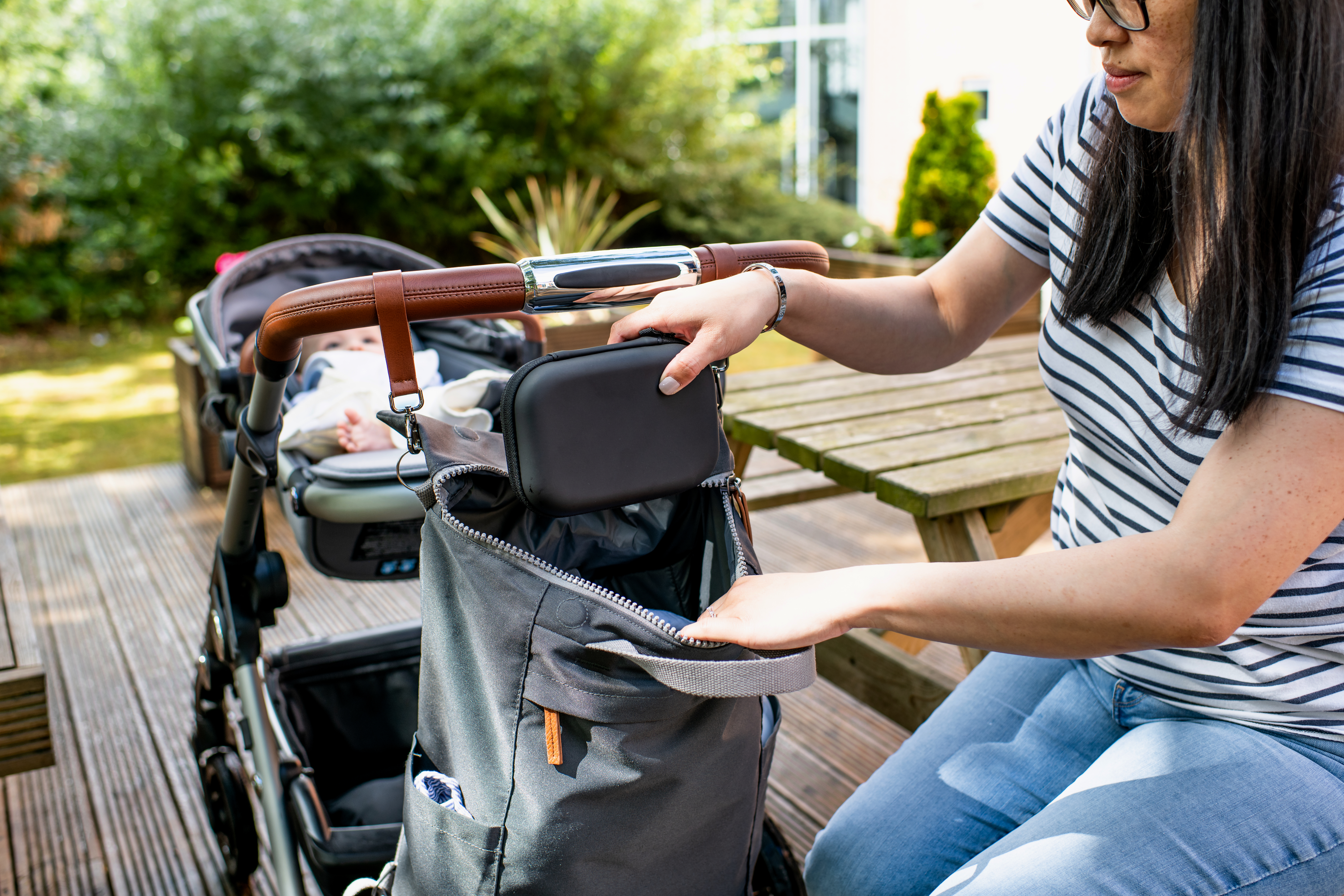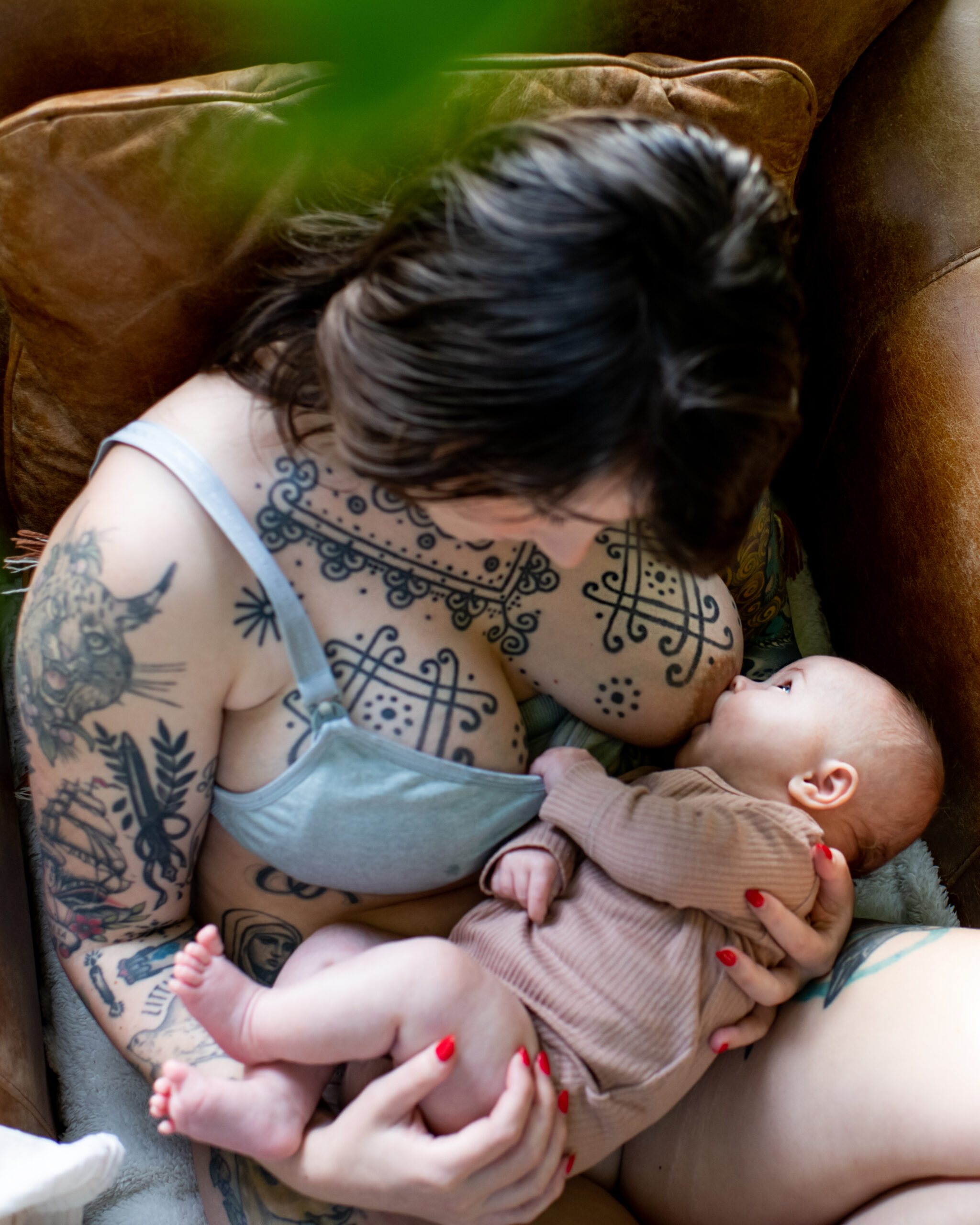HOW OFTEN SHOULD BABIES POOP IS ONE OF THE MOST COMMONLY ASKED QUESTIONS THAT TOMMEE TIPPEE RECEIVES FROM MUMS, SO YOU’RE NOT ALONE IN WONDERING THIS AND OTHER BABY POOP-RELATED QUESTIONS.
Whether you feel you are changing nappies every ten minutes or worrying that you’re not changing them often enough, it is likely that your baby’s bowel movements are normal. Some babies are like little poop machines, pooping several times a day, usually around every feed. Meanwhile, some babies can go several days without pooping once (you can bet you’ll know about it when it does happen though!).
You’ll find that you’ll change the most nappies with your newborn. A newborn baby can average around 12 changes in a 24-hour period but you may be relieved to hear that this does slow down as your baby gets older (phew!). This is the time however when your nappy disposal unit will be your best friend.
What your baby is fed can also determine how often they poop. Breast milk contains a natural laxative, so breastfed babies can poop more often, especially in the early days. Formula is harder for babies to digest, which changes the texture of their poop to make it more solid. This means it’s more likely for them to become constipated.
But before you reach for the prune juice, it’s probably helpful to know that it is totally normal for babies to strain and cry when passing a poop. This alone does not mean that they are constipated. As long as the poop is soft, everything is fine.
For more information about how to help a baby poop, keep on reading for our more general baby poop guide. It covers everything you are dying to know about your new favorite subject.
IS THIS POOP NORMAL?
You’re in for a surprise when it comes to the colour, texture and smell of baby poop! With the help of Tommee Tippee though, you can become an expert in one of the most talked about subjects for new parents on what’s normal and what isn’t.
Poop. Something you hardly thought about and certainly didn’t talk about before becoming a parent. And now it’s not only a hot topic of conversation but wondering whether the colour, texture, smell or frequency is normal is starting to drive you a little crazy!
Baby poop comes in all sorts of shades and forms and can keep even the most experienced parent guessing. Let us help demystify that nappy for you with our handy baby poop guide….
BABY’S FIRST POOP
Among the most unusual baby poop is a baby’s first poop. This is because it is made up of something called meconium, which is made up of everything mum ingested while their baby was in the womb. This poop is a dark greeny-black color and very, very sticky, which can make it quite difficult to wipe away. Yes, it does look and feel like something they tarmac the roads with — this is normal and will likely last for a few days at least.
BREASTFED BABY POOP
After the meconium has passed, your baby’s poop will start to change to a lighter greeny-black colour and then on to a yellow hue. It is also often quite bright. The texture will change too, from sticky to grainy, even loose. It should be soft and easy to pass. The biggest surprise for new parents is often the smell, as it is far sweeter than you might anticipate – a breastfeeding bonus!
BOTTLE-FED BABY POOP
It is a little more difficult for a baby to digest formula than breast milk and this results in some small differences in their poop. Bottle-fed baby poop is likely to be bulkier than breast-fed baby poop. Colour-wise, you can expect the poop to be a paler yellow or yellowish brown and it will be stronger smelling. Fortunately, your nappy disposal system should be helping you keep those nasty niffs away.
BABY POOP WHEN INTRODUCING SOLID FOODS
All change! With solid foods, your baby’s poop will now become larger and thicker, more like what you’d expect as an adult. And unfortunately they will get smellier too! You may notice that different foods affect the poop differently. Sometimes you’ll see the colour of the poop reflect what you’ve given your baby to eat. You may also notice certain hard-to-digest foods pass straight through. This will change in time, as your baby gets used to different food types. In the meantime, you’ll have fun guessing what those weird little black flecks are (HINT: it’s probably that banana). This poop just got real.
JET PROPELLED POOP
Yes, your baby can achieve some real force behind that poop! Don’t be surprised if that poop you’ve waited longer than usual for has made its way out of the nappy.
WHAT TO WATCH OUT FOR WITH BABY POOP
You already know that poop comes in all sorts of shapes and sizes (not to mention smells and colors). Because of this, it is sometimes hard to tell when something is wrong. Nevertheless, there are a few signs you should watch out for that could indicate a greater problem:
- Diarrhea – runny or even explosive diarrhea could be a symptom of teething or an allergy, but you should check with your doctor in case of infection or other medical problem.
- Constipation – some babies just don’t poop as often as others (especially if they are bottle fed). However, if your baby is really struggling, crying and their poops are like rabbit droppings, you should contact your doctor. This is especially true if there is blood in your baby’s poop. Refer back to our advice about how often my baby should poop above for more information.
- Blood – blood is baby’s stool is usually a symptom of constipation and can normally be remedied quite easily. Nevertheless, you should always consult your doctor to be on the safe side.
- Green poop – green poop is normal in newborns but could be a sign of infection in older babies. It is often a sign in breastfed babies that they are drinking all of the fore milk but not getting the rich milk at the end of the feed.
- Pale poop – very pale poop is a sign of jaundice, which is common in newborns. If it lasts longer than a couple of weeks though, you should consult your doctor.


